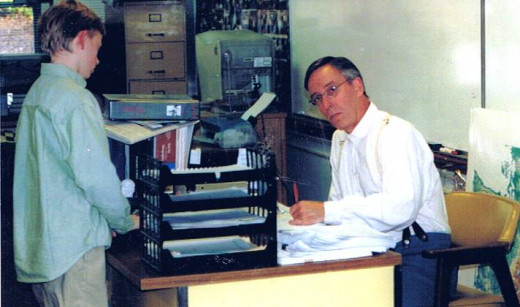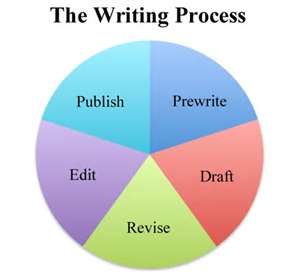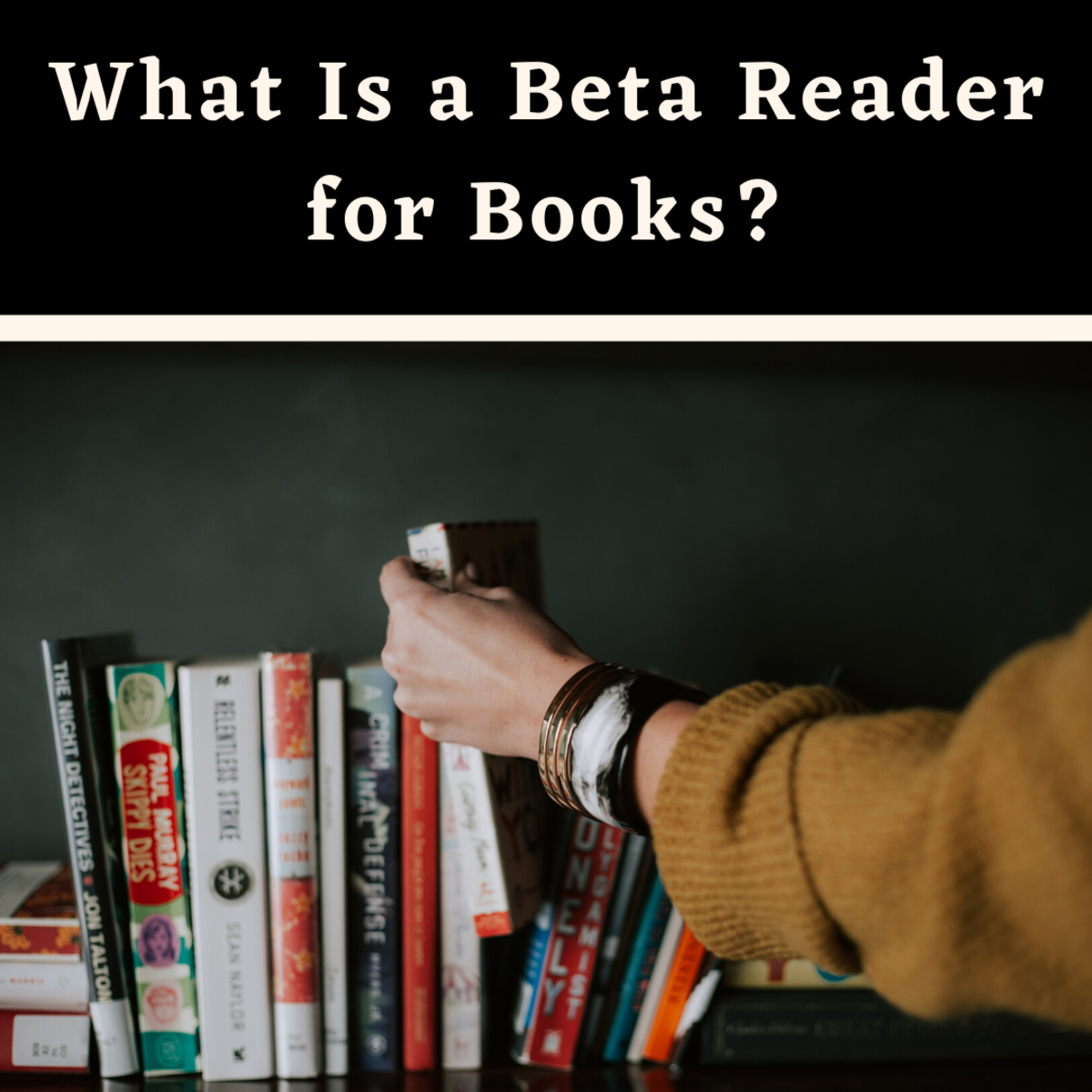How To Edit and Revise Your Writing
The Ugly Side of Writing
Anyone who has ever written for a living, or who writes with serious intent, can attest to the fact that the hard work of writing happens after the rough draft has been written.
Once the natural flow of that rough draft has been completed, then comes the drudgery of editing, proofreading and re-writing, and that can be painful indeed.
I have some good news and I have some bad news for you. The bad news is that there are no shortcuts to this phase of writing. In order to assure that your finished product is the best that you can do, you must go through this phase of the writing process.
The good news is that if you follow the suggestions below you just might end up with a work worth reading.
If you are ready, then, please continue. Below you will find ten tips that will improve your final draft and make that writing of yours sparkle.

CREATIVE WRITING DOES NOT HAVE TO MEAN TRUTH
Creative writing, by its very definition, is a creation. A creative writer has certain liberties and he/she must not be afraid to use those liberties when writing.
As a writer, I spend a great deal of time writing about past experiences. My goal is to teach lessons about life. Having said that, what is most important, the lesson I am teaching or the accuracy of the story? Naturally it is the lesson since that is my main goal of writing an inspirational piece. If my dates are not accurate or I change some names of people I have known, it really is not terribly important.
Don’t get hung up on the truth and sacrifice the intent.
LESS IS BETTER WHEN USING WORDS
Robert looked at the horrible, slithering, disgusting mass of worms…..Robert looked at the writhing mass of worms.
There may be some of you who prefer the first of those two sentences, and that is fine, but the point being made is that diarrhea of the mouth and written word is harmful to good writing. I have found that oftentimes those who ramble on and on end up saying very little, while those who choose their words wisely and for the maximum effect are quite informative and much more successful.
I am also speaking from a selfish stance. My time is valuable so would you please entertain or inform me with brevity? Thank you!
ACTIVE VOICE BEATS PASSIVE VOICE MOST TIMES
There were a great number of dead corpses on the ground….or….Corpses littered the area.
What’s the difference? Well, the first is adequate while the second is good. It is the difference between telling the reader a story and having the reader become engaged in the story.

Interesting thoughts on the writing process
PARALLEL CONSTRUCTION IS A SOLID FOUNDATION
The werewolf bared his teeth and then, raising his claws to sharpen them, he started licking his chops….or……The werewolf bared his teeth, sharpened his claws and licked his chops.
By aligning your verb tenses and uniting phrases with a common construction, you become much more economical with your writing and thus more interesting.
STOP RELYING ON ADJECTIVES AND ADVERBS
Since the day Barbara met her neighbor, she felt very scared and frightened…..or….Since the day Barbara met her neighbor, terror haunted her heart.
Which would you use to pound a nail into a board, a hammer or a pillow? Nouns and verbs are the most powerful tools in a writer’s tool belt. Use them and leave the pillows on the bed.
DON’T BEAT A DEAD HORSE. SIMPLER IS BETTER
“I’m sorry,” Peter said meekly….or…..”I’m sorry,” Peter said.
In the second option you are giving your readers the benefit of the doubt. You are saying that your readers are intelligent and quite capable of intuiting the emotions in the dialogue. The use of the word “meekly” is, well, rather meek of you.
In fact, let's stop a moment and talk about adverbs. Some famous writer, and I forget who it was, said adverbs are the tool of the weak mind. A bit strongly stated perhaps, but his message is clear. Why tell your readers that your character stated something in a meek manner when you can do the same thing by setting the scene properly?
Don't take shortcuts and don't treat your readers like they are brain dead.

VISUALIZE A SCENE
Writing should be visual. What does your scene look like? The reader needs to know. Think like a cinematographer when writing and paint a picture. If you don’t then the reader will, and the scene they paint may not be the one you intended.
“In the dream I lie on a poncho liner, dehydrated with blood expander, my upper thigh and side torn by wounds that could have been put there by wolves. I am convinced I will die unless I receive plasma back at battalion aid. Next to me lies a Negro corporal, wearing only his trousers and boots, his skin coal-black, his torso split open like a gaping red zip-per from his armpit down to his groin, the damage to his body so grievous, traumatic, and terrible to see or touch he doesn't understand what has happened to him.”
From “The Tin Roof Blowdown” by James Lee Burke
Now that, my friends, is visualizing a scene.
VARY SENTENCE STRUCTURE
Bob walked outside. He saw his neighbor. He saw her purple hair and laughed.
Or
Upon walking outside, Bob saw his neighbor’s purple hair and laughed.
Break up the monotony of your sentences or risk being declared a boring writer.
LISTEN TO THE MUSIC OF YOUR WORDS
Find a rhythm to your words. Writing should be poetic or sound like a music score. I work hard to find that rhythm, and I believe it is the difference between mundane writing and spectacular writing. There have been days when I will spend quite a bit of time finding a three-syllable word that works instead of a two-syllable word. Go with the flow and let that flow sing to your reader.
My own thoughts on the writing process
Did these tips help?
AVOID REPETITION
A sure-fire way to lose the interest of your readers is to repeat the same descriptive word over and over again. God made the thesaurus for writers who like repetition. Repetition is boring. Repetition is tiresome. Repetition should only be used for emphasis, just as I used it in the last three sentences of this paragraph.
ONE LAST THING
Writing is an art form. It needs to be treated as such. Strong prose is a matter of practice and discipline and an awareness that everything that you write matters. The suggestions listed above can make an average writer a good writer, and a good writer better, but you need to be willing to do the work.
Now, go practice your craft and make us all proud!
2013 William D. Holland (aka billybuc)
A Footnote
Two years after completing my first novel, The 12/59 Shuttle From Yesterday To Today, I went back and changed the introduction. Why? Because something had been bothering me about it for two years, and it took me that long to realize what it was. I could have left it alone and nobody would have ever known.....but I would have known and it would have bothered me forever.
Editing is an ongoing process. Embrace it and consider it your friend and it will treat you right.










